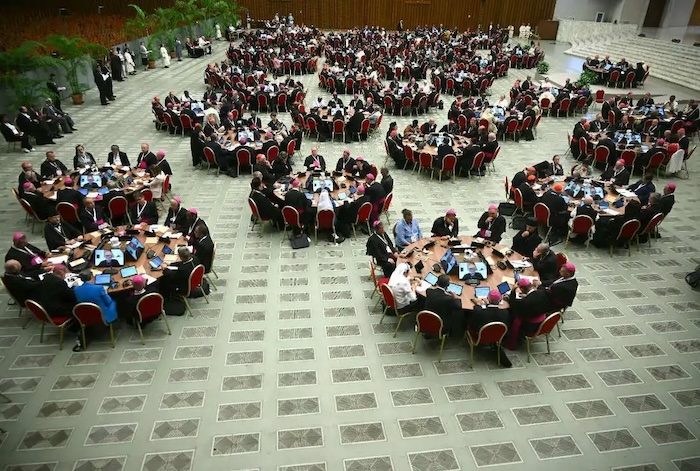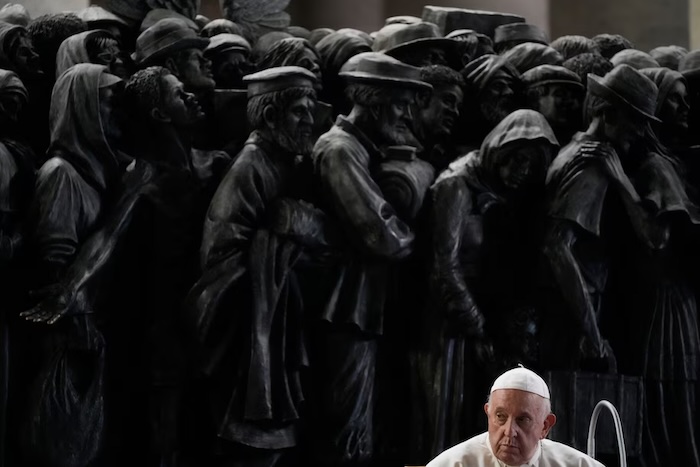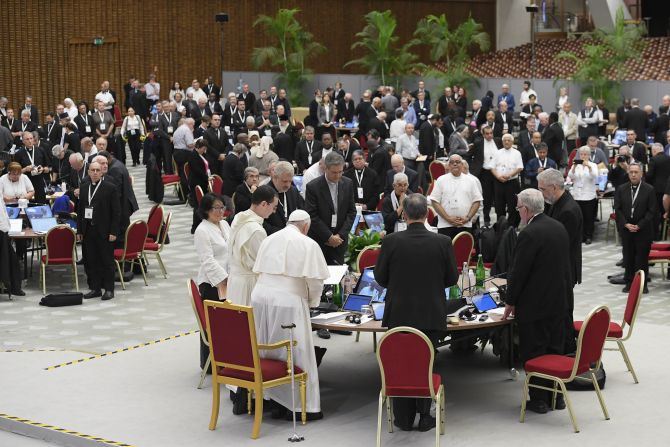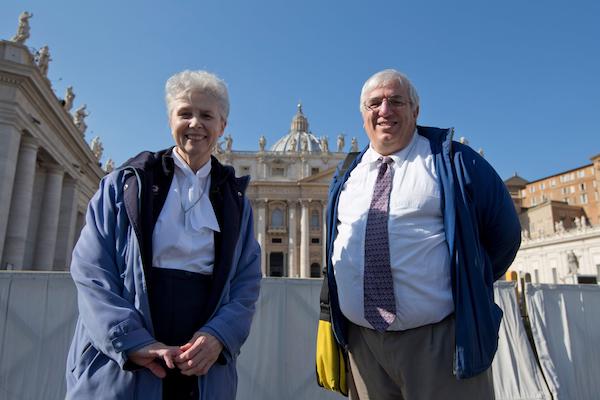
The Vatican’s meeting of bishops — the second phase of a multi-year effort that began in 2021 known as the Synod on Synodality — concluded this past weekend amid a growing debate regarding a number of key issues.
The meetings this month centered around the future of the Catholic church and has put progressives and conservatives at odds when it comes to doctrinal issues. Chief among them remains the ordination of women as deacons, outreach to the LGBTQ community, the blessing of same-sex unions and conferring Holy Communion to divorced Catholics.
The process, at least this leg of it, has largely been shrouded in mystery after Pope Francis announced a media blackout — a papal gag order if you will — regarding what was discussed during many of the closed-door sessions.
The assembly will gather again in October 2024, where a final document is expected to be released and presented to Pope Francis for consideration.
“The process starts, really starts, at the end of the [whole] synod,” Cardinal Jean-Claude Hollerich, the synod’s relator general, told reporters on Saturday. “So even next year, I hope there will be a document that is a real document, where also some theological questions of synodality get considered and so on.”
The Vatican last Wednesday released a letter saying a “synthesis report” would be released ahead of next year’s final meeting in Rome. At that stage, the synod will present the pope with a series of recommendations.
“There are multiple challenges and numerous questions: The synthesis report of the first session will specify the points of agreement we have reached, highlight the open questions, and indicate how our work will proceed,” the letter said.
That 41-page report, released on Saturday following a vote, noted there were what it called “divergences” on a number of issues.
Here’s what we learned from the month-long synod:
FEMALE deacons
While the ordination of women priests is off the table for the time being, one of the bigger questions the delegates debated was that of women deacons. Many delegates, both male and female, spoke out in favor of allowing women to enter the ministry.
The synthesis report asked for more “theological and pastoral research on the access of women to the diaconate” — including a review of the conclusions of commissions Pope Francis set up in 2016 and 2020.
That paragraph alone was approved by a vote of 279-67, which was more than the two-thirds support needed.
Among members of the synod, the report added, some thought the idea of women deacons would be a break with tradition.
“Others still, discern it as an appropriate and necessary response to the signs of the times, faithful to the tradition, and one that would find an echo in the hearts of many who seek new energy and vitality in the church,” the report said.
This comes as the pope, in remarks to delegates last week, called those in the church hierarchy who had abused their authority as having “macho and dictatorial attitudes.” Ridiculing priests who shop for expensive cassocks in Rome’s ecclesiastical tailor shops, he denounced clericalism, which is the practice of placing priests on a pedestal.
“Clericalism is a whip, it is a scourge, it is a form of worldliness that defiles and damages [the church],” Pope Francis said.
But traditionalist forces within the church don’t appear so convinced. Cardinal Robert Prevost, the head of the Vatican’s bishops office, said women had increasingly been given high-ranking roles within the church under this pontiff.
“I think there will be a continuing recognition of the fact that women can add a great deal to the life of the church on many different levels,” he said.
Reaching out to LGBTQ+ Catholics
While the pope had said on the eve of the synod that he was interested in having the church bless same-sex unions on a case-by-case basis, members spent the past month also discussing pastoral approaches to welcoming Catholics who have felt excluded in the past, including the poor, people with disabilities, LGBTQ+ Catholics and Catholics whose marriages are not currently recognized by the church.
While the synthesis report did not use the terms “LGBTQ+” or “homosexuality,” it spoke in general terms about issues related to “matters of identity and sexuality.”
James Martin, a Jesuit priest and synod member involved in outreach to LGBTQ+ Catholics, told Catholic News Service: “From what I understand, there was too much pushback to make using the term ‘LGBTQ’ viable, even though it was contained in the “‘Instrumentum Laboris’ or synod working document. This opposition came up often in the plenary sessions, along with others who argued from the other side, that is, for greater inclusion and for seeing LGBTQ people as people and not an ideology.”
The report, meanwhile, said that in order to “develop authentic ecclesial discernment in these and other areas, it is necessary to approach these questions in the light of the Word of God and Church teaching, properly informed and reflected upon.”
The report added: “In different ways, people who feel marginalized or excluded from the church because of their marriage status, identity or sexuality, also ask to be heard and accompanied. There was a deep sense of love, mercy and compassion felt in the assembly for those who are or feel hurt or neglected by the church, who want a place to call ‘home’ where they can feel safe, be heard and respected, without fear of feeling judged.”
Was it even a valid synod?
That’s the question some posed in the final week of meetings. In fact, some participants questioned whether it is a Synod of Bishops given that, for the first time in church history, lay members — including 54 women — will have a vote.
Pope Francis made the decision earlier this year to invite lay men and women to the gathering, conferring them almost a fifth of the vote.
Asked at a press briefing on Oct. 23 about whether the 364-member synod Synod on Synodality should be considered a Synod of Bishops, Cardinal Christoph Schonborn of Vienna said he did not see an issue and that it would help establish a “closer connection” between the sides.
The Synod of Bishops, he continued, is “a consultative organ for the exercise of the papal ministry,” adding that lay ballots do not “diminish the weight of votes.”
Eastern rite and Orthodox delegates who participated have insisted that the assembly was not a synod as they understand it. Even the German bishops’ conference-backed news site Katholisch.de, which supports many of the positions championed by progressives, reported that “the legitimacy of the entire assembly” was questioned by some and that the meeting was “in danger of running into an ecclesiastical crisis.”
In an interview with the National Catholic Register with Cardinal Gerhard Mueller, a participant in the meeting and the Vatican’s former top official on church teaching, said the meeting was not a real synod because lay people took “away opportunities” from bishops to speak.
“All is being turned around so that now we must be open to homosexuality and the ordination of women,” he said in the interview, which was published on Saturday. “If you analyze it, all is about converting us to these two themes.”
Complete Article ↪HERE↩!




